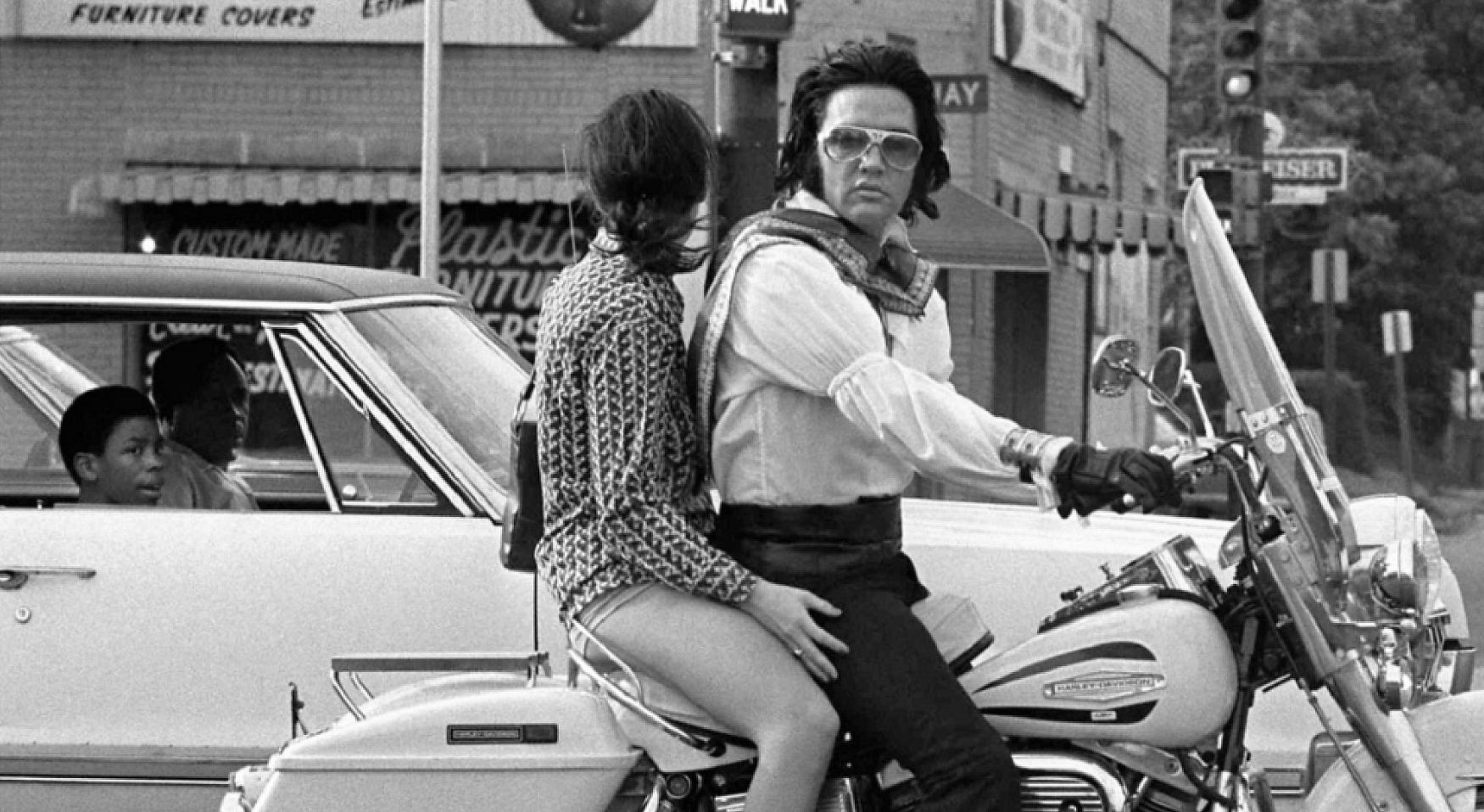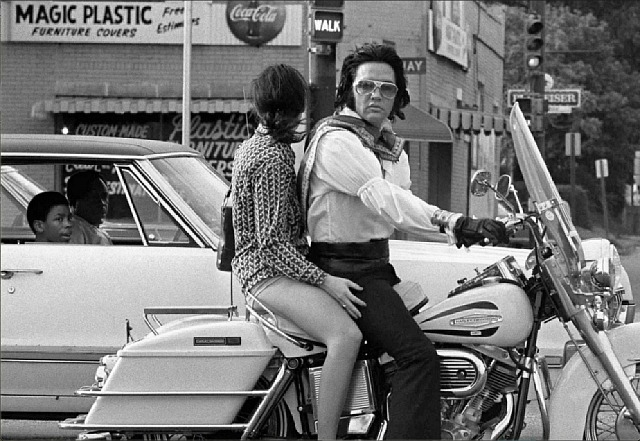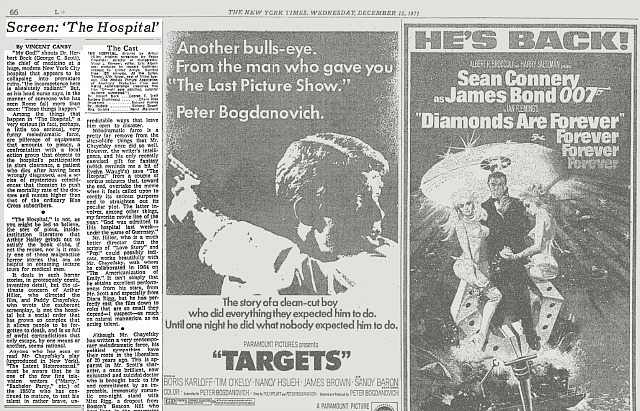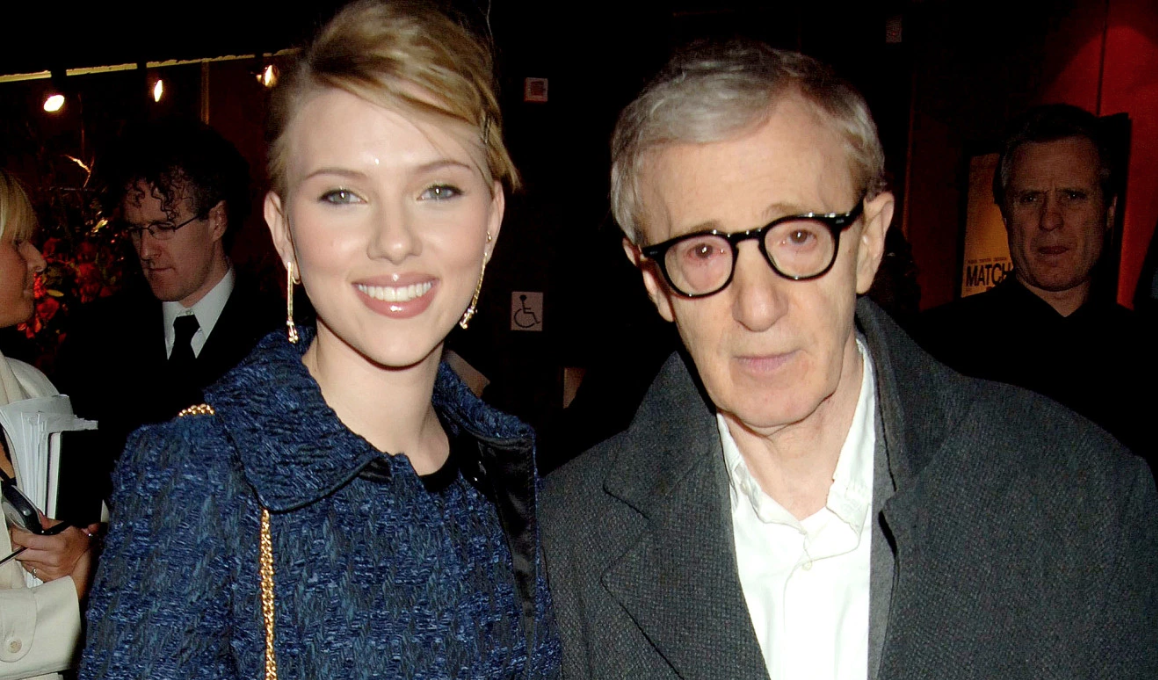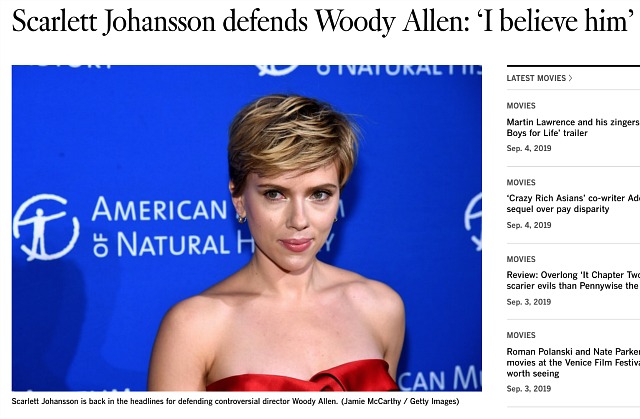I forget when I posted this photo last (maybe three or four years ago), but a fast-acting photographer for The Commercial Appeal took it on 6.30.72 while standing at the corner of South Parkway and the recently re-christened Elvis Presley Blvd.
It’s not Presley-on-the-white-Harley as much as the young black kid (maybe nine or ten years old, and presumably in his mid to late 50s today) and his dad in the car, eyeballing Presley and Peggy Selph Cannon like hawks. A Memphis Mafia pally allegedly spotted Selph at the Whirlaway Club, where she was working as a dancer, and facilitated an introduction. The guy correctly presumed Elvis would be interested because of her resemblance to Priscilla Presley, from whom Presley had become estranged.
Throw all this together with that modest billboard ad for Magic Plastic sheet covers…perfect.
Three weeks after this shot was taken, or on 7.18.72, the 20-year-old Selph was killed in a traffic accident — horrible.
Presley was 37 and seemingly cool and settled this day. He might have even been happy. He had recorded the last half-decent single of his career (“Burning Love“) almost exactly three months earlier (3.28.72), although it wouldn’t be released until 8.1.72. It must have seemed to him like a good in-between moment. Happiness is about believing in good things to come, about trusting in the likelihood of fair weather.
I know exactly what Presley was feeling at that moment…exactly. Chugging along some urban, vaguely ratty boulevard on a well-tuned hog can do wonderful things for the human spirit. Life is so short, and fortunes can turn so quickly on a dime. Three or four years later Presley began to look flabby and dessicated; five years and two months later he was dead.
Once again, a recollection of a brief Memphis visit in February ’09, about ten and a half years ago:
“Yesterday I rented a fairly inexpensive car from National/Alamo around 1:45 pm after landing at Memphis Airport, and soon after began my quickie tour of the four tourist attractions. I loathed Graceland, felt awed and saddened by the Lorraine Motel, didn’t much care for the Disneyland/Universal City Walk vibe of Beale Street, and loved the little shrine that is Sun Records, the small-scale, modest-vibe recording studio that was begun by the great Sam Phillips in 1950, and is now a down-homey, old-time funky studio and and souvenir shop.
“Graceland, the former home of Elvis Presley and an ongoing shrine to the money that his music and movies continue to earn, is just southwest of Memphis airport and located on an ugly straightaway called Elvis Presley Blvd., littered with tacky blue-collar chain stores and fast-food franchises and unsightly warehouses and car washeries. The area is flat and character-less with amber-brown grass and very few trees, except for a relatively small forested area near Graceland.

